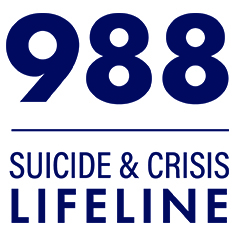A Big Step Forward
May 11, 2012

On March 29, 2012, Governor Christine Gregoire of Washington State signed into law the Matt Adler Suicide Assessment, Treatment & Management Act written to improve health care professionals’ preparedness in the screening, assessment, and treatment of people who are suicidal. According to the website of the Matt Adler Foundation, “In February 2011, 40 year old Matt Adler, loving husband, father of two young children, and an accomplished attorney took his own life while in the midst of a battle with severe depression and an anxiety disorder. Matt was a gentle, intelligent and witty man who made an indelible impression on those he met. His death has left a gaping hole in the lives of many.”
This state law aims to strengthen the clinical capacity of providers in the state to screen, assess and treat those at risk for suicide. It will require (beginning January 1, 2014) that professionals licensed in the state of Washington, at least once every six years, complete a training program in suicide assessment, treatment, and management that is approved by the relevant disciplining authority and is at least six hours in length. The legislation instructs these authorities to consider training that is listed in the SPRC/AFSP Best Practices Registry. The providers that must comply with this new provision are: chemical dependency professionals; marriage and family therapists; mental health counselors; occupational therapy practitioners; psychologists; advanced social workers; and independent clinical social workers.
We should applaud this significant policy achievement and as a field, work to encourage other states to consider similar legislation. Like so many of our national advancements in suicide prevention, the personal experience of those left behind after a tragic suicide death has once again turned pain to promise, grief to action, and hurt to hope. The result is an extraordinary advancement that could be precedent setting. It will, if replicated, have a lasting impact on the field of suicide prevention and the lives of many who struggle with suicidal behavior. This legislation begins to address a concern I have had for quite some time: How clinically trained and prepared are the clinicians we seek out when it comes to screening, assessing and treating those at suicidal risk?
Very often I am asked if I can suggest a clinician skilled in suicide assessment and treatment to help someone looking for support. I sometimes struggle providing a recommendation as I have no way of knowing how much training a clinician may have received on this topic. Now, at least in Washington State commencing in 2014, this will no longer be an issue for those seeking assistance. Washington residents will have the benefit of clinical staff being required to receive such training as a condition of license renewal. This should take some of the mystery out of finding the right clinician for a person in need of clinical support. It is my hope that the power of this legislation will spread to other states and that soon the day will come when we won’t have to wonder if a clinician has been well-versed in assessment, treatment and management of patients in need. It will be the rule and the expectation, and no longer the hope or the exception. This law may also serve as a catalyst to move a bit upstream in the training process and encourage graduate programs that prepare behavioral health clinicians to include suicide assessment, management and treatment as required content in their programs.
Our current National Strategy for Suicide Prevention (2001) called for the implementation of training for recognition of at-risk behavior and delivery of effective treatment (Goal 6) and the development and promotion of effective clinical and professional practices (Goal 7). Sadly, progress has not been as forthcoming and widespread as hoped for, as far too many clinicians are not receiving adequate training in their graduate programs and far too many still have not received continuing education to incorporate these skills into their current practice. Thankfully this is about to change, at least in the state of Washington.
Congratulations to all who led the way for this legislative achievement. To Jennifer Stuber, Matt’s wife and advocate; to Governor Gregoire for signing the bill; to Representative Tina Orwall, the prime sponsor and the other cosponsors who supported the bill; to Sue Eastgard, Peggy West and Paul Quinnett and the many advisors who added their expertise and knowledge of the suicide prevention field to ensure this legislation was crafted in ways that would lead to changes in clinical behavior; and to the many, including the professional associations representing the clinicians, who supported the bill’s passage. You have all taken a courageous and important step in the pursuit of saving lives. The field owes you a debt of gratitude and we should all hope that other states will follow suit. Your efforts are a wonderful example of advocates, legislators, clinicians, professional groups and concerned citizens coming together to make the kind of changes needed to reduce the burden of suicide and suicidal behavior. Suicide prevention really is everyone’s business, and the legislation that has been enacted makes that case loud and clear.
Sincerely,

Jerry Reed, Ph.D. MSW
Director, SPRC
